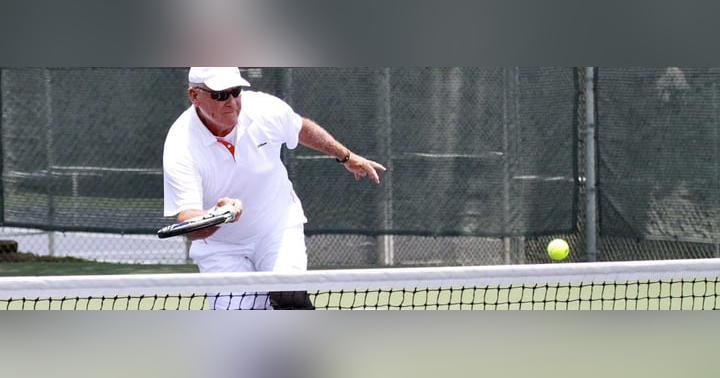Building confidence in young tennis players

Having confidence in your own ability is often what separates the best racquet sports players from everyone else. Players with a high level of confidence in their own abilities are likely to be more successful as they enter every match believing that they will win. The earlier a player learns to have confidence in their own ability the better prepared they will be as they progress on their tennis journey. Unfortunately, confidence isn’t something that can be taught overnight, to a certain extent self-belief and confidence is innate and needs to be built upon over time.
Below we’ve shared some of the best ways to help build confidence in young tennis players:
Don’t fear failure
Failure is an inevitable part of all sports, it’s impossible to win every match you compete it or never drop a shot within a match. Fear is an extremely powerful emotion and the fear of failure can have a detrimental impact on an athlete’s performance. If a player spends the whole match worrying about whether they will lose it will limit their performance as they are less likely to take risks which, if successful, can be the difference in winning a point.
Not fearing failure is very different from accepting failure. Of course, all athletes will strive for perfection, however, it’s important to remember that perfect is near impossible and losing is inevitable. That doesn’t mean that failure should be accepted. Tennis players should start every match looking to win, but remember it’s not the end of the world if they don’t. Sometimes the best lessons can be learned when a player doesn’t play to the best of their ability. This is something that should be taught to tennis players at a young age so they can start to understand how a defeat can help improve their game in the long run and how to respond to losses. Mastering tennis isn’t something that happens overnight and it’s moments like these that help to mold players for the future.
Master the basics
An effective way to help build a player’s confidence in their own ability is to start by mastering the simple aspects of the sport. By mastering the basic shots in tennis such as a forehand return, young players will soon start to grow in confidence as they see improvements in their game. Once a player has mastered the basic skills they can start to experiment with more difficult shots as their self-belief and confidence has grown.
Put simply young players need to learn to walk before they can run. If they spend time trying to learn difficult techniques they will soon become disheartened and doubt their ability as their success rate is likely to be lower.
Practice makes perfect
It’s an overused cliche but the more effort a player puts into perfecting their game the more they will get out. You’ll hear coaches around the world say this on a near-daily basis but it couldn’t truer, especially when it comes to increasing a young player’s confidence. Players who don’t put in the hours in training and practice will see little improvement compared to those who are always on the court. As a result of this, these players will likely lose more matches than they win, which in turn will knock their self-belief and confidence. Only through regular and consistent practice will young players see significant improvements in their ability, one of the key elements for building self-confidence.
Don’t worry about other people’s opinions
One of the most damaging things for young players confidence is worrying too much about the opinions of others, whether it’s peers, parents, or coaches. This can affect players in different ways, certain players will rely on a high level of positive reinforcement whereas others will be worried that they are going to disappoint people if they don’t succeed. Both of these thoughts can be extremely detrimental to a young player’s confidence which will further impact their ability.
If a player relies too heavily on reinforcement from others they will start to doubt their ability if they aren’t constantly receiving praise. For example, if they play what they think is a great shot but their coach doesn’t say ‘good shot’ for instance they might start to second guess themselves and question whether they are a good player.
On the other hand, it’s common for young players to worry about what others will think about them when competing. This could be anything from a fear of embarrassment to worrying about letting their coach or parents down.
Set realistic goals and expectations
Setting unrealistic goals and having high expectations are some of the most common things that destroy a young player’s confidence. While it’s important to set goals, both short and long term, it’s important to ensure they are achievable and realistic. For example, entering a match with the goal to win every point isn’t realistic as it’s highly unlikely that a player will play a match without dropping a point. However, setting realistic goals such as improving certain aspects of a player’s game is much more achievable and the player has greater control over the outcome.
If a player sets unrealistic expectations and doesn’t meet them when playing, they will start to doubt their own ability, which in turn will have a negative effect on their confidence. Additionally, having realistic goals and expectations will also help to boost a player’s confidence as they meet their goals and exceed their own expectations.
Confidence is not something that can be learned overnight and can only be taught to a certain extent. While it’s true that a player’s confidence can grow as a result of practice and previous match experience, ultimately confidence is a mindset that athletes need to adopt.
That’s why we’ve developed audio tracks and blogs aimed to help improve all aspects of a tennis player’s mental game.











